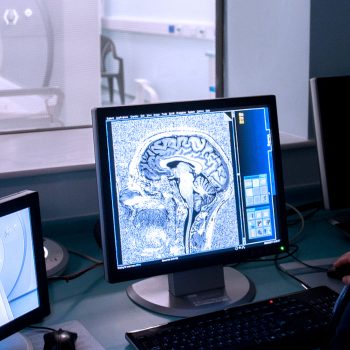Exploring how inflammation affects cognitive performance in people with depression
Research from Cambridgeshire and Peterborough NHS Foundation Trust (CPFT) and supported by the NIHR Cambridge BRC and NIHR Cambridge Clinical Research Facility, has found that inflammation may influence cognitive problems for people with depression, highlighting a new target to improve treatment.
The research team tested the cognitive performance of 80 people living with depression, and participants with evidence of inflammation had worse scores for processing speed and reaction time. Their results, reported in an international journal, will support further investigations to learn how inflammation is linked with cognitive dysfunction in depression, and how to effectively help people recover.
Lead author, CPFT consultant psychiatrist Dr Muzaffer Kaser said: “Cognitive problems are commonly experienced in depression, and new treatments targeting the immune system have potential to tackle these symptoms. Firstly, we need to better understand the link between inflammation and cognition in depression. In this exploratory study, depressed patients with high levels of inflammation markers showed poorer cognitive performance. Inflammation status may provide insights into how cognitive functions are affected in depression. The Insight Study will hopefully shed more light on how to best treat cognitive dysfunction in depression.”
The full article ‘Neurocognitive Performance in Depressed Patients with low-grade inflammation and somatic symptoms was published in Brain, Behavior, & Immunity – Health and is available online to read.
CPFT is also working with the Inflammation and Psychiatry Research Group on the Insight Study to further explore the links between inflammation and depression and find new treatments. Anyone aged 20-55 with depression and currently taking an antidepressant is invited to take part. If you would like to join, or you know someone who might be able to, please contact CPFT’s specialist Windsor Research Unit team running the study: email wru@cpft.nhs.uk or call 01223 219531.
The Insight Study lead Professor Golam Khandaker said: “The aim of this research is to generate knowledge about new causes of depression in order to develop better treatments. There is still time to take part, so please get in touch!”
The research on neurocognitive performance in depression was supported by CPFT, the University of Cambridge Department of Psychiatry and the National Institute for Health Research (NIHR), specifically NIHR Cambridge Clinical Research Facility, and NIHR Cambridge Biomedical Research Centre. The researchers received funding from a Wellcome Trust fellowship and NIHR Clinical Lectureship, the BMA Foundation, MQ: Transforming Mental Health, and the Medical Research Council UK.



